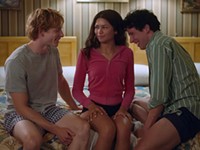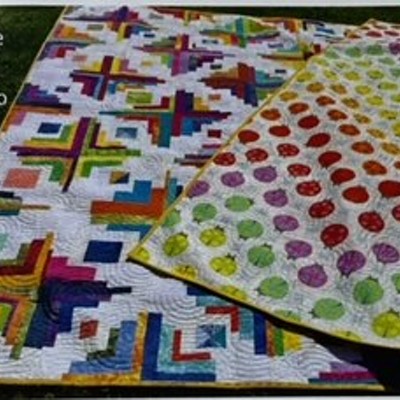[
{
"name": "500x250 Ad",
"insertPoint": "5",
"component": "15667920",
"parentWrapperClass": "",
"requiredCountToDisplay": "1"
}
]
Despite the general assumptions of so many cultural commentators about the dumbing down of American audiences and the consequent deterioration of the art of cinema (along with the decline of the West and the end of Civilization As We Know It), the critical and popular reception of some recent movies suggests some cause for hope.
Although they must compete with the usual holiday blockbusters, apparently Capote and Good Night, and Good Luck, both "little" films, manage to draw viewers around the country, even beyond the art houses. And now, the most recent of a number of adaptations of Jane Austen's novel Pride and Prejudice currently appears on screens in the same multiplexes that usually reverberate with small arms fire, large explosions, and the screams of the wounded.
The most difficult of the challenges that any adaptation of Jane Austen faces derive from the very nature of her work. Her witty, polished examinations of the rural upper classes in the England of the late 18th and early 19th centuries provide a seemingly limited subject and a narrow arena for the motion picture camera, but as both Ang Lee's Sense and Sensibility and the present film demonstrate, a good writer and director can turn the ostensibly precious and unpromising material into intelligent and entertaining cinema.
If it now and then neglects the subtleties of Austen's dialogue and description, the picture retains not only the major characters and the essential romantic relationship, but also something of the look and feel of Austen's England. The director employs a number of lovely panoramic shots of great houses, rolling hills, and lush greensward populated by various domestic animals to establish the changes of season and the varying moods of the story.
Elizabeth Bennet (Keira Knightley) and her four sisters, members of a family of impoverished country gentry, absolutely must find husbands --- without a son, their father's property will devolve to their cousin, an odious sycophant of a clergyman. Her sister Jane (Rosamund Pike) falls in love with Mr. Bingley (Simon Woods), a wealthy bachelor newly arrived in the neighborhood, while Elizabeth finds herself involved in a much less simple connection with Bingley's best friend, Mr. Darcy (Matthew MacFayden). In the usual manner of the course of true love, both young women encounter a number of obstacles before finding fulfillment and happiness.
In the film, as in Austen's novels, the real subject, beyond the romantic relationships, lies in the author's depiction of the manners of an isolated, inhibited social class governed by a set of unspoken rules of behavior and the very real facts of money and property. A young woman of a certain class lacking sufficient fortune faced a bleak future, and thus absolutely depended upon the prospect of a good marriage. The smart, spirited Elizabeth, a perfect counterpart to the thoughtful, saturnine Darcy, reacts angrily to his interference in her sister's relationship with Bingley, a snobbish acknowledgment of her family's situation, which temporarily damages the possibility of a romantic connection.
Aside from the predictable story of love lost and regained, the movie retains some of the truth of Austen's portrait of an age and a world, where the complexities of social class smother a whole society and hinder any individual development, except for a fortunate few. It shows the difficulty of speaking freely and openly and thus knowing and understanding other people, where much depends upon gossip and rumor, the fuel of social intercourse in a restricted and sterile culture. It also displays something of the Austen notion that proper behavior and moral action sometimes coincide, which thus determines the goodness of her men and women throughout her novels.
The director allows his camera to suggest much of the film's meaning, without attempting to underline the action with narration or authorial comment, employing Elizabeth's point of view, for example, to show in visual terms her thoughts and feelings. The script allows the actors to speak the careful sentences of Austen's dialogue, so that even the stilted language of polite society expresses a depth of thought and emotion that transcends the boundaries of a stifling decorum and control.
Pride and Prejudice displays a sensitive understanding of Jane Austen, and even better, a surprisingly deft cinematic translation of her creation, a rare instance of a motion picture doing justice to a book.
Pride and Prejudice (PG), directed by Joe Wright, is playing at Culver Ridge 16, Henrietta 18, Little Theatres, Pittsford Plaza, and Tinseltown.
Latest in Movie Reviews
More by George Grella
-

Film Review: "Cake"
Jan 26, 2015 -

Film Review: "American Sniper"
Jan 19, 2015 -

Film Review: "Inherent Vice"
Jan 12, 2015 - More »






